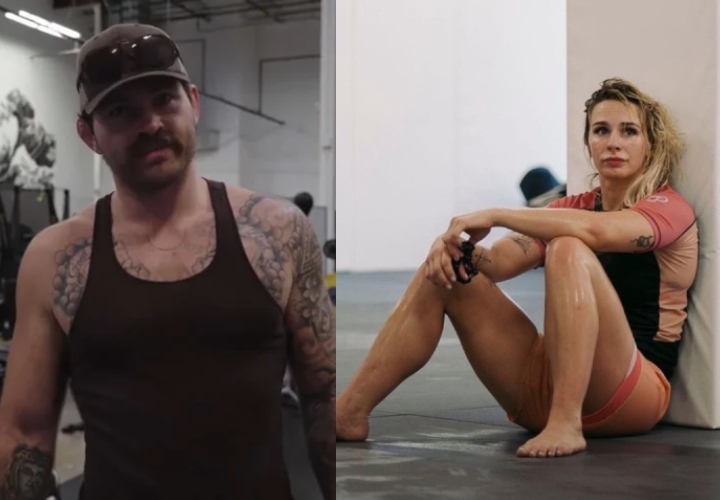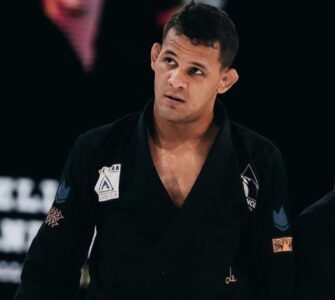Gordon Ryan, considered the No Gi GOAT in the world of Brazilian Jiu-Jitsu , recently stirred controversy with his comments regarding equal pay for female athletes in the sport. In a statement that has since sparked heated debate across the BJJ community, Ryan bluntly addressed the issue, asserting that the gender pay gap in jiu-jitsu is not a result of discrimination but rather a reflection of market demand and individual branding efforts.
Ryan’s remarks came in response to a statement from ADCC and BJJ world female champion Ffion Davies who had recently highlighted a big issue concerning ladies who teach and compete. And that’s the lack of (proper) pay.
Here’s what Davies had to say:
To my fellow pro ladies – please please PLEASE don’t accept low or no pay for your classes, seminars or matches on shows.
She went on to explain why:
If you’re suffering from impostor syndrome like I did, a great perspective I heard years ago from Livia Giles was that if we don’t charge our worth, we set a precedent that the girls coming up behind us won’t be able to demand the pay they deserve and undercut them.
Davies concluded:
You deserve to be paid on professional shows, you deserve to be paid for your classes.
We would not expect this of men, and this is how we support women’s BJJ – by supporting the athletes also.
Gordon personally blasted Ffion Davies on his IG and dismissed the notion that gender plays a significant role in determining compensation in the sport, instead attributing pay differentials to factors such as viewer interest and personal branding. Ryan’s statement, while polarizing, underscores broader discussions about gender equality and financial equity in sports.
1st – for everyone whining about “how are you attacking ffion davies,” Shut up. She attacked me far before I ever mentioned her. You just don’t know about it. It was also completely unprovoked.
The crux of Ryan’s argument lies in the principle of supply and demand. According to him, the reason female athletes in jiu-jitsu receive lower pay is not because of their gender but rather due to the comparatively lower viewership they attract. Ryan contends that the best female athletes, both present and past, have not garnered the same level of attention and engagement as their male counterparts, resulting in a disparity in earnings:
Now, let’s break this down. Turning this into a men vs. woman thing is a joke. It’s like when the WNBA players talk about how they should be paid equally, but when they actually ran the math, the players were being overpaid and completely subsidized by the parent league. Remember when a reporter asked ronda rousey how she felt that the ufc was finally paying a woman equally? To which she responded something like, “You think I’m being paid more than everyone because I’m a woman and not because I simply generate more revenue than everyone? What kind of question is that?”
Furthermore, Ryan challenges the notion that organizations deliberately underpay female athletes based on their gender. He argues that compensation is primarily determined by revenue generation, asserting that athletes, regardless of gender, are paid based on their ability to draw audiences. In Ryan’s view, individuals who fail to command substantial earnings in the sport cannot attribute their financial struggles to discrimination but rather to their inability to cultivate a compelling brand and attract spectators.
Supply and demand is simple, and it has 0 to do with sex. Women athletes in jiu jitsu get paid less, not because they are women, but because far fewer people want to watch them relative to meat this current time.
Critics of Ryan’s stance argue that his comments overlook systemic barriers and inequalities that female athletes face in sports. They contend that disparities in pay and opportunities are not solely a product of market forces but are also influenced by entrenched biases and institutionalized sexism. Additionally, opponents argue that Ryan’s emphasis on individual responsibility fails to acknowledge broader structural issues that contribute to gender inequities in sports.
Ryan’s remarks also touch upon the importance of athlete branding and marketing in securing lucrative opportunities. He highlights the lack of female athletes who have been able to transcend the confines of jiu-jitsu and build a brand that extends beyond the sport itself. According to Ryan, the ability to generate revenue hinges on an athlete’s capacity to cultivate a strong personal brand and attract sponsors and endorsements.


















